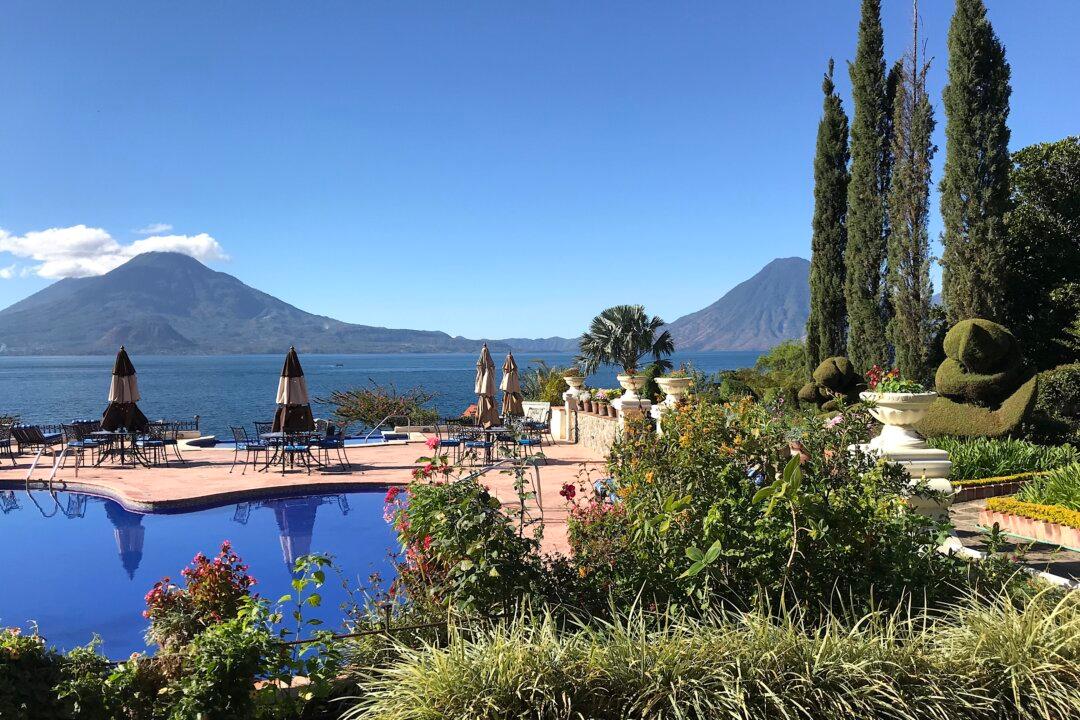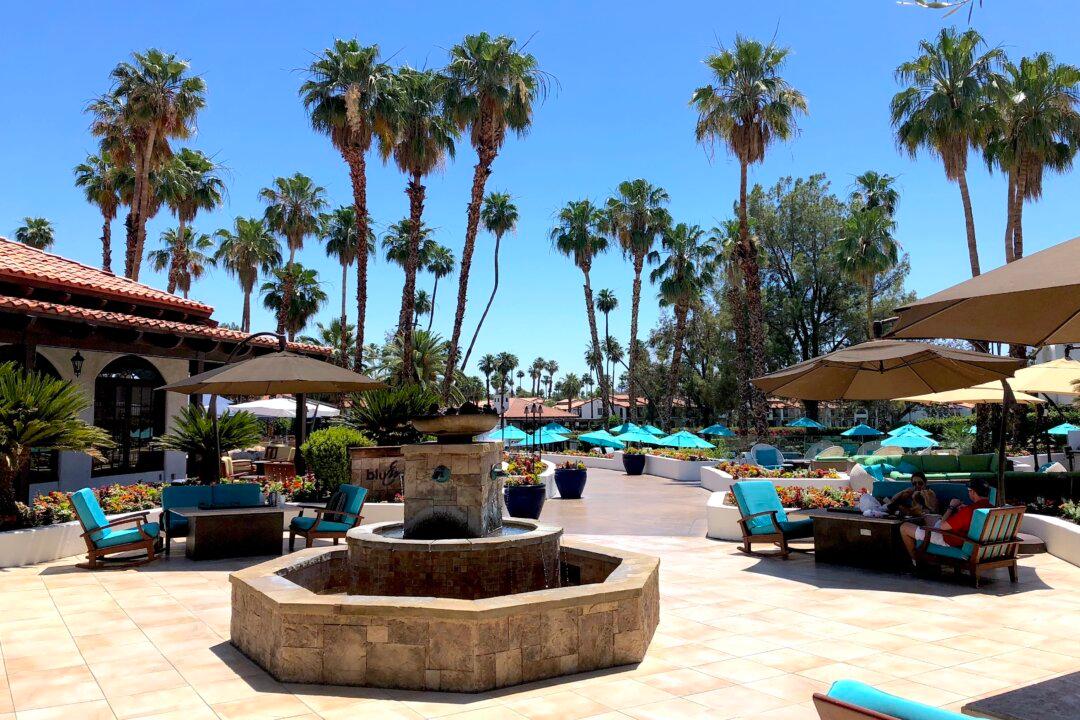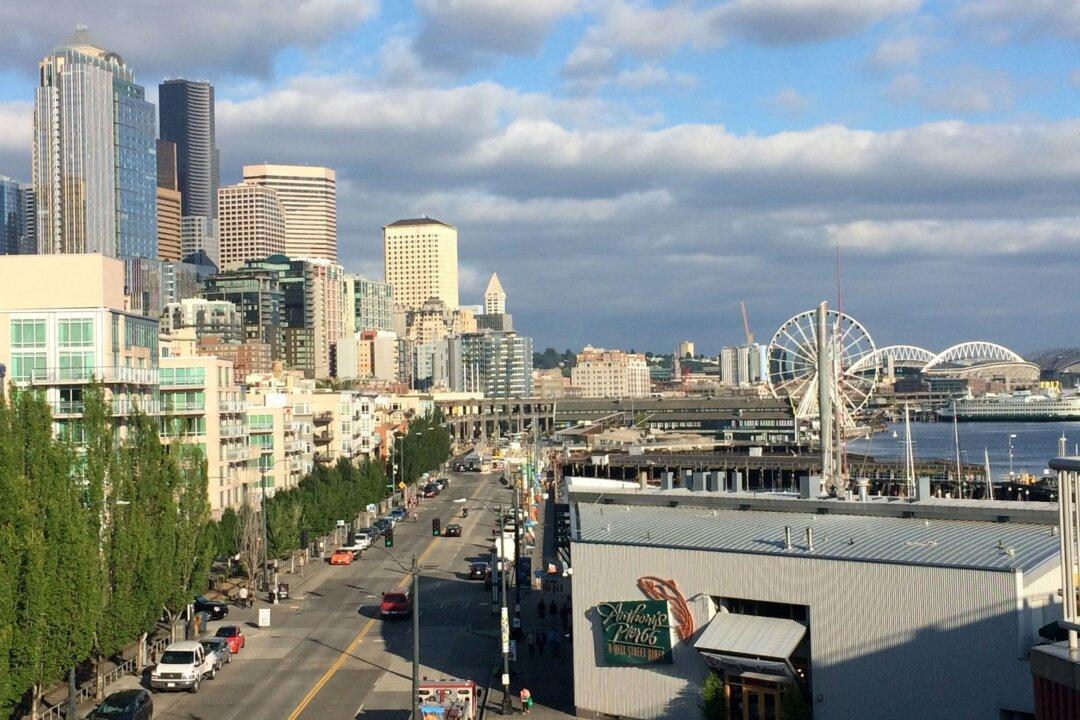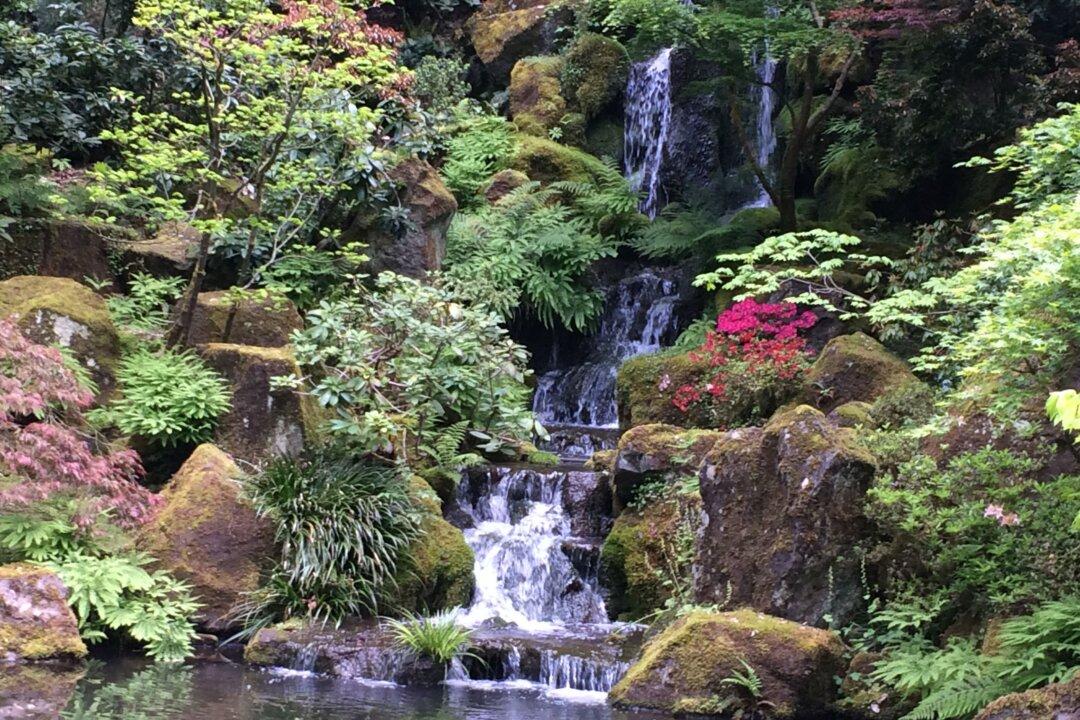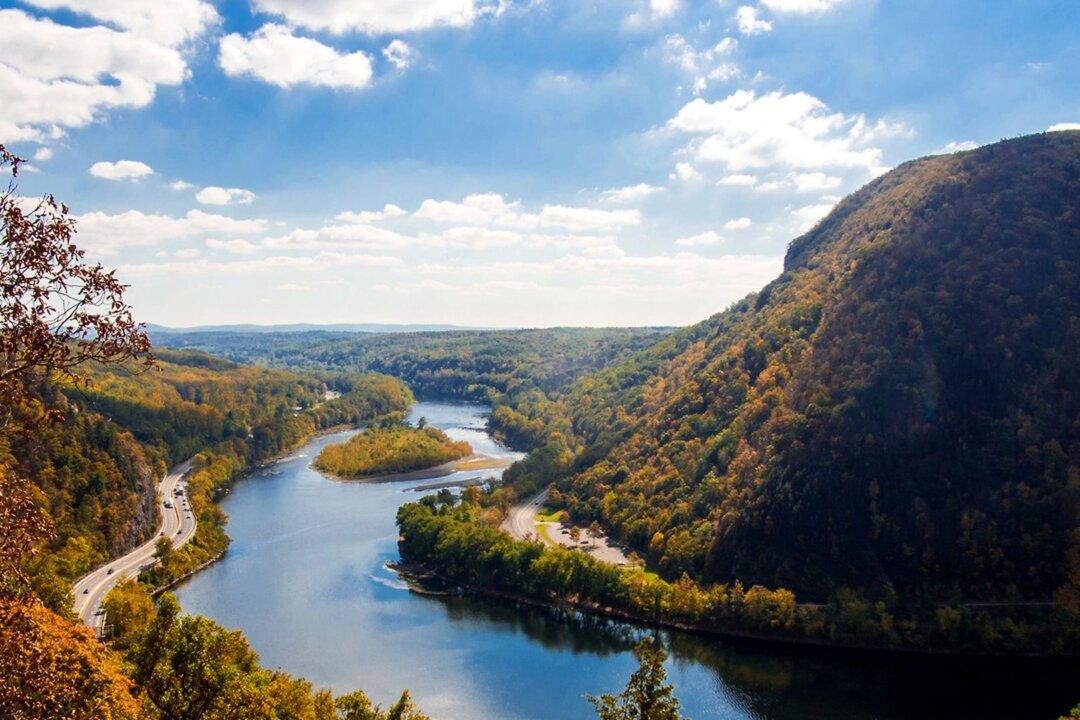I awoke to the soothing songs of toucans and parrots amid a palatial paradise. Was I still dreaming or truly surrounded by sculpted gardens of colorful tropical foliage, three towering volcanoes, and a massive mountainside with houses clinging to cliffs?
I was at Guatemala’s Hotel Atitlan located next to Lake Atitlan, a huge crevice created from a volcanic collapse some 85,000 years ago. This was quite a culmination to my nine-day adventurous journey with Caravan Tours, visiting mystical Mayan cultural sites thousands of years old.

